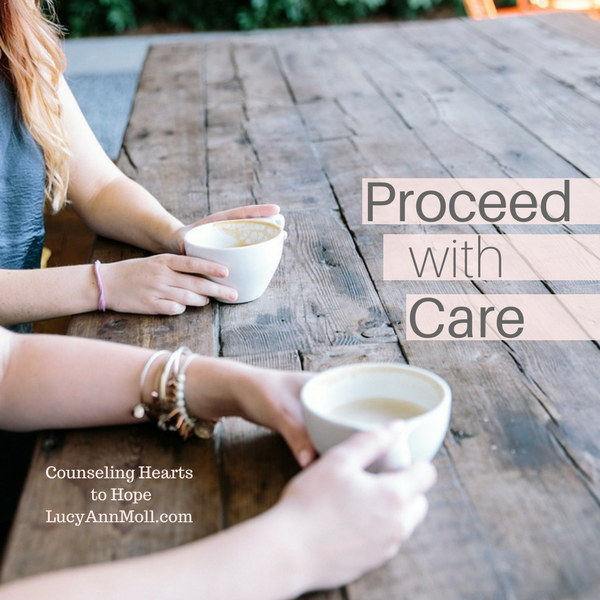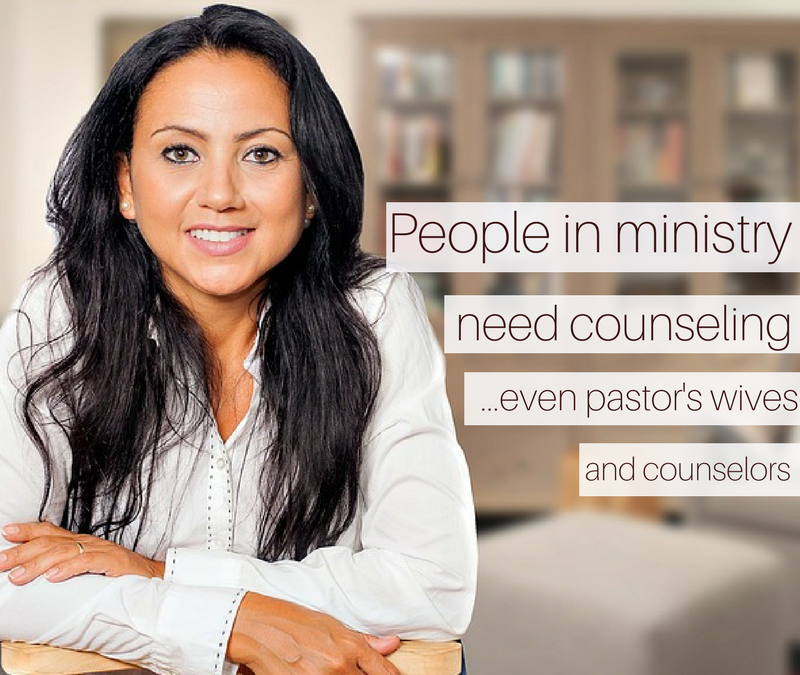
by Lucy | Apr 17, 2018 | biblical counseling, Counselor Resources
Caring in crisis: The Lord calls you to love one another as He has loved you. In this article by biblical counselor and guest writer Betty-Anne Van Rees, she outlines important steps in caring for people in all types of crisis. Here article appeared first here at The Biblical Counseling Coalition website and is used with permisison.

As Jesus’ ministry on earth was drawing to a close, He had a conversation with His closest followers as they ate together in the upper room. In the preceding minutes, He had foretold His betrayal, then watched as Satan entered Judas who left that intimate gathering and went out into the night to betray the Son of God. A singularly unique context in world history, this is the moment Jesus chose to offer these words:
A new commandment I give to you, that you love one another; as I have loved you, that you also love one another. By this all will know that you are my disciples, if you have love for one another. (John 13:34-35).
One Truth with Infinite Application
It’s not complicated but it is complex; Jesus delivered one concise instruction with millions of applications. God’s followers will be identifiable as we demonstrate the love that we have seen and experienced in our Savior. It is a love demonstrated through death; death to self and all of the desires, expectations, effort, and even perceived needs that we have. It is also a love seen in living; living for the love of God and the needs of others.
I invite you to briefly think with me about what living this commandment will look like when we love people who are experiencing traumatic circumstances – sudden loss, devastating betrayal, a life-altering medical diagnosis, acts of violence or violation. These are the things that shake our very foundations and can make the future appear as one vast blank slate.
How Did Jesus Love?
1. Jesus entered in.
He is God who became man. Hebrews tells us that this means He understands (Heb. 4:15). When we love as He has loved us, we won’t stand at a distance trying to serve from our own understanding. We will draw near to those we seek to serve, so that what we offer truly gives grace in the moment. When people in our world face these types of catastrophic events, we need to step in – and stay in.
Click & Tweet!
Job’s friends started so well. Their silent presence acknowledged the depth of Job’s pain and the mystery of the hand of God in this world. Take time to sit in the ash heap with your hurting friend. Let them know of your commitment to journey with them – even for them – as long as they need.
While you wait, prayerfully listen for needs. People in crisis may be struggling with the basic necessities of life – food, clothing, shelter. It is probable that their new reality will require them to navigate worlds they don’t understand – legal, medical, governmental. With the magnitude of the needs, it will most likely be unrealistic for one person to serve in all of the ways needed. Gather a team who can knowledgeably navigate the different areas of service, and offer your friend a coordinated plan for care that communicates confidence and the tender love of God.
2. While Jesus entered in to understand what it is like to be us, He was not uncertain about our ultimate need.
Jesus met many earthly needs along the way but never lost sight of the true need.
Click & Tweet!
We needed God and Jesus came as the means to open the way to God. Similarly, we will demonstrate His love best by remembering that those we seek to love need far more than our human effort; they need God. Our efforts are merely conduits of His beauty and grace to them. Do the work of love but never forget the heart of love; the gospel of God points to hope in the midst of deepest darkness.
3. Jesus followed.
He repeatedly indicated to His listeners that He, like us, was called to a role of submission. He loved perfectly by allowing the Father to determine His life choices. If we are going to love well, we will submit in humble obedience to the One who truly knows all things. We won’t offer what we believe is needed, nor will our own desires and expectations dictate our service.
It’s very likely that our friend doesn’t even know what they need – or if they do, they may be unable to articulate it. We will serve them best if we are in a posture of waiting on God for wisdom and then following in humble obedience as He leads.
Proceed Gently
In times of crisis, the wounds of the battle are raw. A “touch” from a friend that is not carefully considered can feel like the burn of rubbing alcohol. You may fail at times and if you do, be ready to acknowledge failure and ask for forgiveness.
By God’s grace, we don’t live in crisis all the time, and no two crises are the same and the people within a crisis are individuals. We will do well to approach the needs of a friend suffering traumatic circumstances with faith-filled, love-infused caution. At the same time, we hold on to the hope that God is near and tenderly working for His glory and the good of each of those touched by suffering.
Questions for Reflection
During times of personal crisis in your life, what has ministered most to you? What other applications to caring in crisis do you see in John 13:34-35?
About Betty-Anne Van Rees
Betty-Anne Van Rees (MABC) is fueled by her passion to see the Canadian church convinced and equipped to care for souls through the living Word (both Incarnate and inspired). Betty-Anne serves on the board of the BCC and has worked together with a team of like-minded men and women to launch the Canadian BCC.
Counseling Hearts to Hope,


by Lucy | Apr 5, 2018 | Counselor Resources, relationships
People in ministry need counseling too, right? But some are reluctant to get it. Even pastor’s wives, biblical counselors, Bible study leaders, and so on. Here’s biblical encouragement for you. By guest writer Eliza Jane Huie.

“Is there a back door?”
The question was not only unexpected but also a bit bewildering. The caller was confirming her counseling appointment and wondered if there was a less conspicuous entrance she could access. She went on to explain that her husband was a pastor of a church in the area. This is one reason she was afraid to be seen coming into a counseling office.
This desire for anonymity didn’t have to do with our counseling center. She shared how we came highly recommended. And it didn’t have to do with any high-profile situation or scandal. It had everything to do with the fact that she felt shame from the reality that she, a pastor’s wife, was needing counseling.
Shouldn’t people in ministry — and especially the pastor’s family — have it all together? Shouldn’t she be the one doing the counseling? And what if her husband were to join her for a session? Would they ever be able to conjure up a good enough reason to quiet the barrage of suspicion that might be raised?
A back door seemed the easiest answer.
The Shame of Needing Care
The caller is not alone in her fears.
Click & Tweet!
Indeed, many people in ministry, including some biblical counselors, go without care simply because of a common misconception that they should “have it all together.” How can a pastor, pastor’s wife, ministry leader, missionary, or the like be competent for ministry if they need counseling? People under their leadership might ask this question. It is a question that, like the caller, may bring shame.
The concern isn’t fully without merit. Certainly there are things that can cause a pastor or leader to need to step away, but just because people in ministry are seeking counseling doesn’t mean that they are dealing with that kind of a situation. This stigma may keep them or their family from getting the care they need.
Click & Tweet!
Hope-Sustaining Help
I have had the privilege to care for several people who are either directly in ministry or part of a family in ministry. So I know how providing a safe and confidential place to process life can be incredibly valuable for people in the ministry spotlight. Counseling has been an infusion of sustaining hope to those who find themselves facing personal trials amidst the call to ministry.
I read a personal story of one pastor who benefitted greatly from taking the advice that he had given countless times to people sitting in his office. “Set up an appointment with the counselor I’ve suggested to you. You need safe ears—someone with years of experience who doesn’t know you as well as I know you.” Taking this step himself changed his ministry. His only regret was not doing it sooner. It is now the advice he shares will those entering the ministry.
Encouraging Counseling for People in Ministry
If that is the case why would we ever want a stereotypical stigma to get in the way of anyone getting this care? In fact, people in ministry are more energized for ministry when they are also cared for. Since this is the case, shouldn’t churches and ministry organizations encourage this for those in leadership and their family members? This is the “putting on your oxygen mask first” concept encouraged by those with years of experience in leadership.
I personally know a church that leads the way in breaking this stigma by providing 10 counseling sessions to anyone on their staff. No strings attached. Ministry leaders can take advantage of this at their own discretion.
Another ministry I’ve worked with provides mandatory counseling sessions at their yearly leaders’ retreat. The counseling was provided by a trusted third-party team of biblical counselors. It provided confidential space for leaders to share their heart without judgment. Since everyone at the retreat had a complementary session scheduled into their retreat time, nobody was singled out. By introducing this avenue of care in this way, it broke the ignominy that can accompany leaders or their families when they seek counseling.
Step Toward Help Today
The woman looking for the back door that day ended up coming to our counseling center for the next six months. By finding a place to work through her struggle she found new ways of processing and understanding her circumstances. And even better, she found fresh hope in her ministry role as a pastor’s wife. She never used the back door (though that was the subject of a couple of our counseling sessions). What is even better she now feels no need to even ask for it.
If you are in ministry or leadership (or are a biblical counselor), you shouldn’t be ashamed to get the help you need. Whether it is dealing with a significant crisis or even processing the everyday realities of ministry life, you will flourish when you are cared for. Take the step today and contact a trust faith-based counselor who can walk with you in the midst of your ministry calling.
Do you need help finding a biblical counselor?
On Heart2Heart Counselor Directory, you’ll find female biblical counselors by state and specialty. Almost all of them also offer counseling by Skype or other online option. Check out Heart2Heart Counselor Directory here. (If you’re a counselor and would like to be listed on Heart2Heart, simply fill out this form. A basic listing is free.)
Biblical Counseling Center offers complimentary counseling to pastors and their families. Contact BCC here.
Also, the Biblical Counseling Coalition, the Association of Biblical Counselors, and the Association of Certified Biblical Counselors all have connection pages to help people find a counselor near them. You can also contact the Christian Counseling and Education Foundation.
 About Eliza Huie
About Eliza Huie
Eliza Huie is the Executive Director at Life Counseling Center, a biblical counseling ministry in Ellicott City, Maryland. She has a Master’s in counseling, advance certificates from CCEF, and holds a graduate license in counseling. She is the author of Raising Teens in a Hyper-Sexualized World and Raising Kids in a Screen-Saturated World (released Spring 2018).
Counseling Hearts to Hope,


by Lucy | Mar 29, 2018 | biblical counseling, Counselor Resources, whole health wellness
Self-care for the counselor: Yes, it’s true. . .you cannot run on coffee alone! So what do counselors really need? Biblical counselor Eliza Jane Huie shares important stuff here, helping you help others. Her article appeared first here at The Biblical Counseling Coalition website and is used with permission. Eliza is also listed on the Heart2Heart Counselor Directory. Check it out.

Counselors give significant amount of their time and energy to their calling. At its very core, biblical counseling is a call to be an ambassador of reconciliation by walking with distraught people through trials and suffering and holding out gospel hope to them. Furthermore, it is a challenging calling.
If you are a doing any type of counseling, formal or informal, you need to be very intentional to also take care of yourself.
Click & Tweet!
This is an area that can be easily missed. One simple reason for that is because self-care is something not often talked about among biblical counselors. In seeking to lay down their lives for others, they can be less attentive to their own needs.
Philippians 2:4 says,
Let each of you look not only to his own interests, but also to the interests of others.
Don’t miss the “not only” part of that passage. Looking to your own interests appropriately can actually position you to serve better. Here are a few questions you can ask to determine if you need to heighten your focus on caring for yourself as you serve others.
Do You Listen to Your Body?
Your body sends you signals when it needs something. It is important to listen to what your body is telling you. Basic essentials like food and sleep can be the first areas that are unknowingly sacrificed when caring for others. Guard against pushing your bedtime later and later. By God’s design, we need rest and when this is missing, it will affect your ability to serve well. Healthy eating goes along with your need for rest. Despite many people’s experience, you cannot run on coffee alone.
Click & Tweet!
Poor eating habits will catch up to you.
Lack of exercise is another way you can ignore listening to your body. It can be much easier to miss the messages your body is telling you in this area. Counselors spend a good amount of time sitting down and listening to people. Your mind and heart are active, but your cardiovascular system and muscles are not. The aches and pains you may be feeling might just be your body telling you it needs care. Hearing difficult stories can build up stress in your body, and exercise can be a helpful way alleviate stress in yourself.
Does Your Schedule Reflect Your Priorities?
Undoubtedly, there are other things you really enjoy doing besides counseling. However, if you find your hobbies and interests have no place in your schedule, it is probably time to take a look at why that is. There will always be a crisis or need when you are a counselor. A call to care for others as a counselor does not mean you lose yourself.
Click & Tweet!
God has given you other talents and interests. There is purpose in these gifts and interests as well, so don’t ignore them.
Do you have time alone? Even the most extroverted person needs time alone—time to be with the Lord and to recharge should be a guarded priority in your schedule. Because counseling fully engages you with people, being alone can help you create “space” to reflect on your own life with the Lord. If Jesus took time to find a quiet place of solitude, then we should consider how much we need to do the same. Not only does this create a space for being refreshed, but it also expresses a trust in God to care for others while you care for yourself.
Are You Less Patient or Empathetic?
Being prone to impatience is certainly a disconcerting character trait for believers, but if you find yourself less patient with the people you are caring for, then it is something that must be addressed. Lack of empathy is also cause for concern. Both of these problems can come from traversing in the dark places of people’s lives. Walking with people in crisis and pain will have an effect on you. Counselors need to be aware of signs that they too need care. If you find that you care less, it is a good time to care more for yourself. Be sure you are not neglecting those things that help you to serve well.
Conclusion: Self-care Is Not Selfish
These are just a few areas to get you thinking about whether or not you are doing well in caring for yourself as you care for others. The ministry of counseling has a deep impact on your own mind, body, and soul. Counselors need to rest assured that self-care is not selfish; it is a means to guard their own wellbeing. In turn it blesses those to whom you are ministering. You will serve better when you care for yourself.
Join the Conversation
What are other signs pointing to a need for self-care should counselors be aware of in their lives? How can counselors get better at disciplining themselves for self-care?
 About Eliza Jane Huie
About Eliza Jane Huie
Eliza Huie is an experienced biblical counselor and serves as Director of Counseling at Life Counseling Center in Marriottsville, Maryland. She seeks to bring gospel hope to those hurting or seeking change.
Counselor, would you like to join Heart2Heart Counselor Directory too? Choose a free listing (or an upgrade). Make connections with like-minded counselors and new counselees. Learn more.
Counseling Hearts to Hope.

by Lucy | Mar 22, 2018 | biblical counseling, Counselor Resources, emotions, thoughts
 Triggers: Often counselees speak of triggers, whether or not they have post-traumatic stress. It’s a societal buzzword. So what are triggers? How does the Bible term them? And what can you help your friend, counselee, or yourself handle them? The guest post by Andrea Lee whose article appeared first here on The Biblical Counseling Coalition website and is used with permission.
Triggers: Often counselees speak of triggers, whether or not they have post-traumatic stress. It’s a societal buzzword. So what are triggers? How does the Bible term them? And what can you help your friend, counselee, or yourself handle them? The guest post by Andrea Lee whose article appeared first here on The Biblical Counseling Coalition website and is used with permission.

As a biblical counselor, I often hear about “triggers.” These are situations, locations, words, and people that remind counselees of past pain or current heartache. These triggers threaten to engulf counselees in an avalanche of despair, anger, or anxiety. What is a trigger and how can a biblical counselor engage with people who seem to be subject to them?
Counselees view a trigger as an event or circumstance that is the cause of a particular response or emotional process
Click & Tweet!
. As a counselor to women, here are some situations I have encountered:
- It could be a mom who identifies her rambunctious toddler as a “trigger” – one energetic outburst and the mom is overwhelmed with exhaustion and despair.
- It could be a wife whose husband’s typical response in conflict is a “trigger”- one phrase or condescending look and the wife is flooded with anger or hopelessness.
- Or it could be a young single woman who sees Friday nights as a “trigger” – she has been alone and miserable for many Fridays and now dreads the end of every week.
In seeking to help these women, I explain to them that triggers do not cause their response. The so-called “trigger” is a reminder that tempts them toward a well-worn destructive thought pattern.
Click & Tweet!
The reminder is often associated with pain: previous failures, past hurts, or current broken relationships. Women feel helpless because they don’t know how to stop responding in a destructive way. I love to give hope by showing a new perspective on these moments.
When we label someone or something a “trigger,” we shift the place of emotional control from our own heart to an external object. The connection between event and emotion can mistakenly lead us to think the trigger is a cause. Actually, we have developed habits of thoughts in response to pain that continue to lead to these predictable emotional conditions. Our despair, anxiety, and anger reveal that we are ignoring God and disregarding His promises as we respond to the brokenness around us or in us. Instead of thinking in terms of triggers, I want counselees to see certain situations and people as cues – signals, prompts, and reminders – to begin a series of thoughts that are radically God-oriented. This shift in vocabulary begins to engage counselees in a process of repentance and trust when they are troubled by triggers.
Step 1: Recognize the triggers and the accompanying thinking
Women often know what launches them into a familiar path of pain. But here are questions that can help:
- What was the stimulus that began this descent into despair, anxiety, or anger?
- When do I have a disproportionate reaction to a situation or a person?
- Are others puzzled by the intensity of my response or mood swing?
Once the triggers are identified, it is vital to have the counselee write down their exact thoughts. You will probably hear some of these in the counseling room. For example:
- I can’t believe this is happening again. I can’t take it anymore. What if this never gets better?
- I’m stuck. Nothing ever changes. It’s unfixable. I’ll never change.
- Also I can’t breathe. I have to do something right now. I can’t stand the pressure.
If your trigger is related to an experience of sexual and/or physical abuse, please seek further help from a biblical counselor. You will also want to explore In the Aftermath, by Pam Gannon and Beverly Moore and Putting the Past in Its Place, by Steve Viars. If you are struggling with triggers associated with PTSD, Greg Gifford’s book, Helping Your Family Through PTSD, is a valuable resource.
Step 2: Repent by evaluating three categories
 God is gracious to help us identify triggers. It is a gift because it alerts us to repent in specific, concrete areas. Since repentance is the key to change, this gives us hope.[1] Repetitive elements in the counselee’s thinking will reveal weaknesses in theology and worship. Counselees often minimize or ignore God’s goodness, God’s presence, and God’s perfect ways.
God is gracious to help us identify triggers. It is a gift because it alerts us to repent in specific, concrete areas. Since repentance is the key to change, this gives us hope.[1] Repetitive elements in the counselee’s thinking will reveal weaknesses in theology and worship. Counselees often minimize or ignore God’s goodness, God’s presence, and God’s perfect ways.
Psalm 40:1-3 is a great passage to address these areas of unbelief.
- God IS good: “As for you, O Lord, you will not restrain your mercy from me; your steadfast love and your faithfulness will ever preserve me!”
- God IS present: “As for me, I am poor and needy, but the Lord takes thought for me. You are my help and my deliverer; do not delay, O my God!”
- And God IS working: “He inclined to me and heard my cry. He drew me up from the pit of destruction…He put a new song in my mouth”
The Psalmist doesn’t believe these things because he has a perfect past or a blameless record (see Psa. 40:12), but because God gives salvation out of His great mercy in Jesus Christ.
A prayer of repentance may sound something like this:
- Lord, this thought process reveals that I am not believing the truth about who you are. Please forgive me for going astray after a lie (Ps. 40:4).
- My thinking has become futile because I am not honoring you or thanking you (Rom. 1:21).
- I am in a pit of destruction and a miry bog of my own making when I continue to think hopeless, godless thoughts (Ps 40:2-3).
- Instead of spinning into despair and anxiety, help me to wait patiently for you and keep crying out to you. Thank you for your forgiveness and help.
Step 3: Mobilize your cue
Finally, help counselees prepare specific thoughts they will embrace the next time a trigger comes. Identify one thought that most fuels the downward cycle and prepare a God-honoring thought that will replace it. Develop simple statements that can be easily memorized and repeated. When they experience a trigger, the counselee should:
-
Engage in gratitude:
- Thank God for this opportunity to worship Him and to be changed.
- Thank Him for the reminder that we all need a Savior and God has provided one.
- And thank God for the reminder of past sin or hurt because it humbles us and pushes us to know Christ better
-
Embrace a promise:
- God’s grace is up to the challenge.[2]
- God will give me all the grace and strength I need to obey Him (1 Cor. 10:13, 2 Cor. 9:8).
- Also God hears my cries; He is working and He is good (Ps. 40).
There is great joy and hope in moving from trigger to cue by specific repentance and obedience. As you help counselees to recognize, repent, and then prepare for specific situations, you are equipping them to worship God and love others with greater wisdom and diligence. Painful reminders in life can be a cue to trust God by remembering and rehearsing His goodness, His presence, and His perfect ways.
Questions for Reflection
What triggers trouble your counselees? What thoughts fuel the negative spiral? And what cues have you mobilized in your counseling that have been particularly effective?
[1] Heath Lambert, “Die to Self and Grow in Love,” (presentation, Association of Certified Biblical Counselors Annual Conference, 2013; https://biblicalcounseling.com/product/die-to-self-and-grow-in-love-heath-lambert-2/)
[2] Kevin Carson, “Five Favorite Passages in Biblical Counseling” (presentation, Biblical Counseling and Discipleship Training, Atlanta, GA, Jan. 27, 2018).

About Andrea Lee
Andrea Lee lives in Atlanta, Georgia with her husband of 11 years. She serves women in the church and community as a biblical counselor.
Counselor, would you like to join Heart2Heart Counselor Directory too? Choose a free listing (or an upgrade). Make connections with like-minded counselors and new counselees. Learn more.
Counseling Hearts to Hope,






 About Eliza Huie
About Eliza Huie
 Triggers: Often counselees speak of triggers, whether or not they have post-traumatic stress.
Triggers: Often counselees speak of triggers, whether or not they have post-traumatic stress. God is gracious to help us identify triggers. It is a gift because it alerts us to repent in specific, concrete areas. Since
God is gracious to help us identify triggers. It is a gift because it alerts us to repent in specific, concrete areas. Since 

